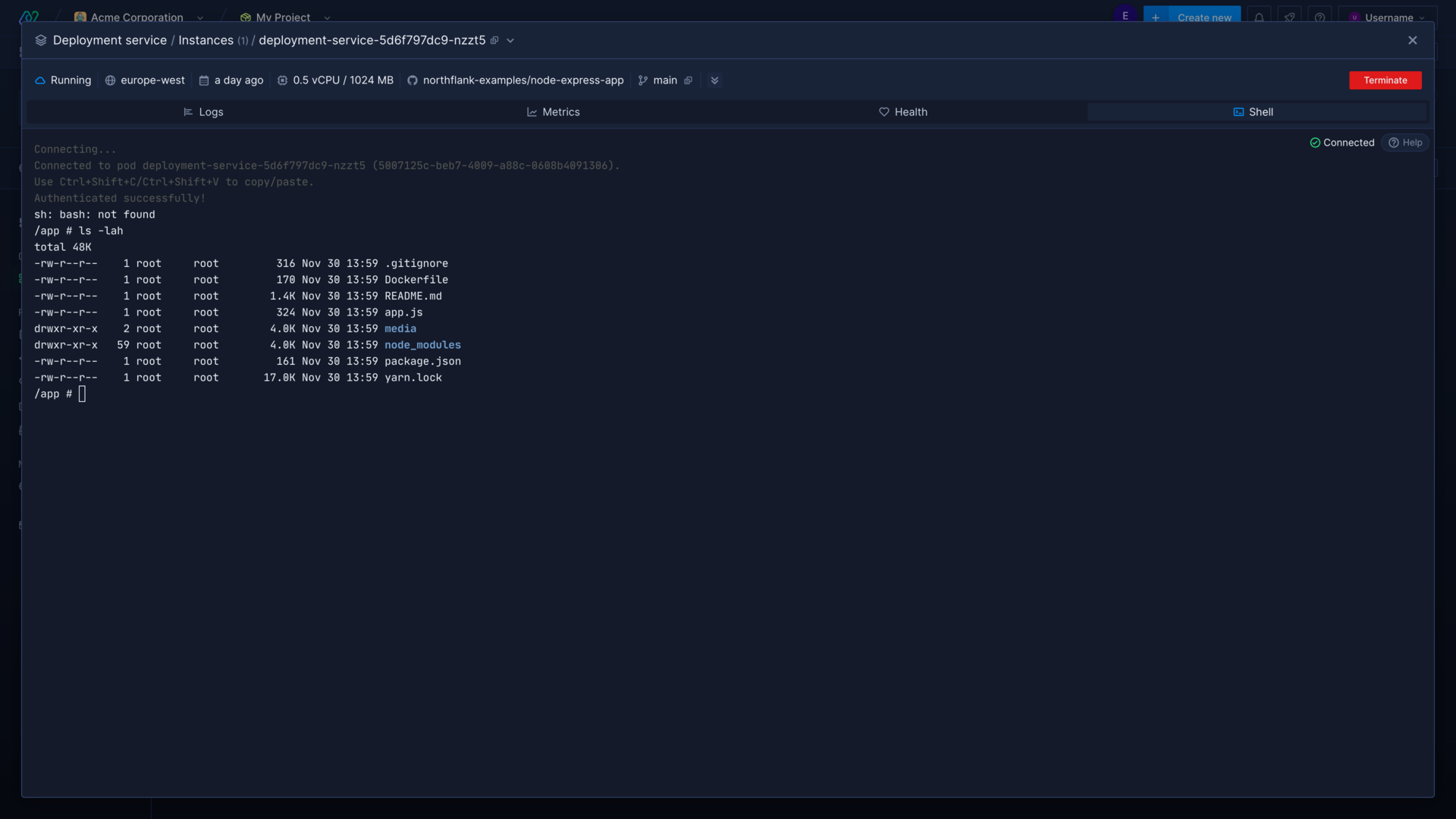Run /
Access running containers locally
You can forward your deployment and addons for local development, this allows you to access resources as if you were in your secure Northflank project network.
You can also open a shell in your running containers, giving you SSH-like access to the filesystem, environment, and processes.
Execute commands in a container
Shell access gives you access to everything inside your container, such as environment, filesystem, processes, and the ability to run commands like top, npm, sed, vi, df. It also provides command completion and command history where possible.
You can access the shell of running containers in deployment and combined services by navigating to the containers page for the specific service. You can open a shell for a specific container by clicking shell access button.
Running job containers can be accessed by navigating to the job runs page and selecting an active job run. Click shell access button on the specific container to open a shell.

Copy & paste
You can copy and paste in the browser shell with control-shift-c and control-shift-v. This may not work in Firefox, where you may need to use the right-click menu to copy and paste. Command-c and command-v works across all browsers on macOS.
Forward containers for local access
You can forward a deployment for local development and access using the Northflank CLI.
Your deployment must be running and have at least one port configured.
You can view and copy the command to connect to a deployment on the specific deployment's overview, in the local access section, or use the following commands:
- To forward a specific service:
sudo northflank forward service --projectId [project-name] --serviceId [service-name]
- To forward all ports in a project:
sudo northflank forward all --projectId [project-name]
You can now connect to your deployment locally on the available ports.
Execute commands in an action node
You can execute commands in a service in a template or release flow by using an action node.
Commands supplied in an action node will not be executed with a shell by default. This means commands executed without a shell will not be able to use any shell features, and will directly pass all strings after the specified executable as parameters without any evaluation.
If you require a shell you must explicitly invoke it first, for example sh -c. You can then include your command in the release flow or template after sh -c in quote marks escaped with a backslash (\").
Below is an example of a command run with and without a shell in a template's action node. The commands are executed in a service container which has the environment variable MESSAGE with the value Hello!.
| Command | Output | Description |
|---|---|---|
"command": "echo ${MESSAGE}" | ${MESSAGE} | Executes echo directly, fails to access the environment variable MESSAGE without a shell |
"command": "sh -c \"echo ${MESSAGE}\"" | Hello! | Invokes a shell to execute echo and successfully reads the environment variable MESSAGE |
Next steps
Forward deployments and databases
Forward deployments and databases to your local machine for development.
Add private ports
Configure ports to allow your services to communicate securely within your project.
Add public ports
Configure ports to expose your services on the internet.
Use Northflank generated DNS entries
Learn about Northflank-generated DNS entries for your private and public ports.
Run your application as a different user
Run your Docker image as a different user, or execute commands as a different user in your container.